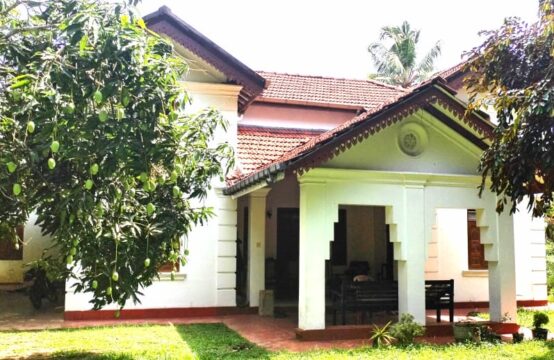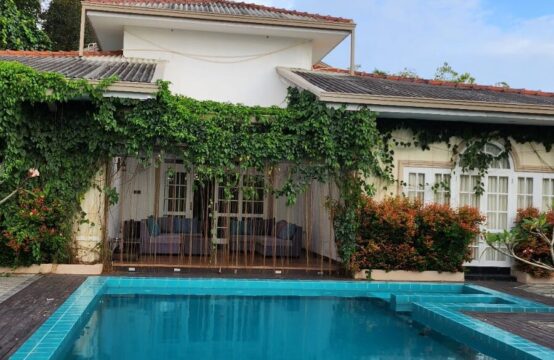FAQ
- Capital gains tax In Sri Lanka and its effects on property
-
The Capital Gains Tax (CGT) is a tax applied to the profit realized when investment assets are sold. This tax is calculated based on the difference between the selling price and the purchase cost of the asset, with adjustments for any improvement or selling-related costs.
In Sri Lanka, CGT was reintroduced under the Inland Revenue Act, No. 24 of 2017, and has been effective since 1st April 2018. The main details include:
1.Applicable Assets:
•Land
•Buildings
•Machinery
•Investments (excluding shares listed on the stock market, which are exempted).
2.Calculation of Taxable Amount:
•Deduct costs associated with purchasing, improving, or selling the asset from the sale price to determine the capital gain.
3.Tax Rate:
•A fixed rate of 10% is applied to the profits from the sale of these assets.
This tax ensures that profits from appreciating assets contribute to government revenue, while exempting certain investments like stock market shares under the current legislation.
WHAT’S AN INVESTMENT ASSET?A Capital Asset (eg. Land or building, a financial asset) held as part of an investment
WHAT ARE THE EXEMPTIONS FROM CGT?
- The principal place of residence of an individual provided that it has been owned by the individual continuously for the last 3 years before disposal and lived in at least 2 years of those 3 years (calculated on a daily basis).
- If the profit/gain is less than 50,000 and if the total profits gained within the year (through multiple gains) is less than 600,000
- Investment asset realised in two or more parts
- Realisation of investment asset that is jointly owned
- A property or land gifted to blood relations
- Trading stock or depreciable asset
HOW IS THE COST CALCULATED?
The cost of the investment asset as at 30th Sept 2017. i.e. if you bought a land in 2000, then the cost would be the value of that land as at 30th Sept 2017. If you acquired the asset after that date, then it’ll be the cost of acquiring the asset.
HOW IS THE CAPITAL GAIN CALCULATED?Eg.
- Land purchased on 10th Jan 2010 for = Rs. 10,000,000
- Built a house on the land in 2012. Cost = Rs. 15,000,000
- Market value of land & house as at 30.09.2017 = 32,000,000
- House renovation costs on 01.12.2017 = Rs. 1,000,000
- Land+house sold on 01.10.2018 for = 35,500,000
- Property advertising, valuation and legal costs = 400,000
Cost of land & house + improvements + incidentals = 32,000,000 + 1,000,000 + 400,000
= 33,400,000Capital gain of property as at 01.10.2018 = <selling price> – <cost as at 30/09/17>
= 35,500,000 – 33,400,000
= 1,600,000
CGT to be paid = 10% of 1,600,000 = 160,000
WHEN IS AN ASSET DEEMED REALISED (I.E. YOU NEED TO PAY CGT)?- Amount received or receivable on the realisation (cash received for sale)
- Consideration received other than cash (eg. Exchange of asset to another asset)
- Amount received in respect to owning the asset (eg. Altering, repair)
- Grant of an Option
- Transfer of ownership of asset (eg. Sale, exchange, distribute, transfer, cancel, loss, destroy)
- Death of an individual
- Realisation with retention of asset (lease, write-off, change of residence)
CHANGE OF RESIDENCE(SECTION 69 & 70 OF THE INLAND REVENUE ACT, NO. 24 OF 2017)
If a foreigner becomes a citizen of Sri Lanka and becomes a non-resident in the previous country, then any assets held in the foreign country by that person will be deemed realised and will be required to pay CGT on the value.
When a person resident in Sri Lanka ceases to be resident in Sri Lanka, the person shall be treated as having immediately before the person ceases to be so resident realised all assets owned by the person.
These shall not apply to an asset that is a domestic asset of the person immediately before becoming a resident or after ceasing to be a resident.
WHAT HAPPENS WITH THE TRANSFER OF AN ASSET?
On a transfer of an asset to an associate (child, grandchild, relative etc.), spouse or former spouse/death or divorce, the acquisition cost to the acquirer will be the Net Cost of the asset (Net Cost as at 30.09.2017) or cost of acquisition after 01.04.2018. For a swap, the market value of the asset will be considered.
Eg.
- A buys a land at Rs. 5,000,0000
- Land value as at 30.09.2017 is 6,000,000 (Net Cost)
- A transfers a land to B on 15.08.2018
- A has a no gain / no loss (i.e. no CGT to pay)
- B sells land on 30.12.2018 at 7,500,000.
- Taxable capital gain to B is 7,500,000 – 6,000,000 = 1,500,000
HOW AND WHEN SHOULD I PAY CGT?
You need to submit the CGT return and pay the tax within 1 month from the realisation of an investment asset
CAN I SET CGT AGAINST LOSS FROM ASSETS?
No, it cannot set off against loss of capital
WHEN WAS THIS ANNOUNCED?
The Sri Lankan government first unveiled plans to introduce a capital gains tax in the 2017 budget speech. It was proposed that 10% rate shall be applicable for transactions involving capital assets which include any immovable property.
However, Sri Lanka has a history with capital gains taxes which were notably set at 45% and then reduced to 25% in 1978 and finally abolished in 2002, coincidentally by the current premier, Hon. Ranil Wickramasinghe
WHO WILL THIS APPLY TO?
According to the sources available, the CGT will be applicable to both foreigners and locals with the only two criteria being if the property has been purchased within the 10-year period and if a profit has been made on a subsequent sale.
WHAT IS THE REASON FOR THE TAX TO BE IMPLEMENTED?
There has been many a reason put forward to support the inclusion of a CGT, chief among which is that the government’s spending on infrastructure has massively helped raise the prices of real estate property and thus it is suitable for the government to also benefit off of such transactions.
This is also a part of reforms suggested by the International Monetary Fund (IMF) which has advised the administration on raising its tax revenue ratio to the GDP. The government expects to raise Rs. 5 Billion from the imposition of the CGT an equivalent of 0.27% government’s expected tax revenue for the year 2017.
HOW MANY OTHER TAXES WILL ALSO BE APPLICABLE?
Currently, only other tax that will be applicable on the property is a stamp duty of 4%, which is charged on registering a deed of ownership.
EFFECT OF THE TAX ON SRI LANKAN PROPERTY MARKET
Industry opinion over the CGT implementation has been divided. While some see it as a necessary step, many have voiced concerns over the unclear nature of the implementation. The lack of clarity in issues such as if the CGT will be enacted with the power to retrospectively charge the tax has been a concern for many stakeholders.
According to Reuters, since the Prime Minister’s announcement of the CGT implementation it is estimated that foreign investors have sold over Rs. 5 Billion worth of assets.
Another key contention of stakeholders has been the lockout effect of capital being invested in less productive assets as investors will seek to avoid paying the CGT by holding the property for more than 10 years.
WHAT IF I HAVE FURTHER QUESTIONS ON CGT?
You can refer to the Inland Revenue Act, No. 24 of 2017 or contact us to get advice.
Property Search
Trending PROPERTIES
Latest News
Business and financial news in Sri Lanka
By Divya Thotawatte Set overlooking the sweeping southern coastline, Anantara Peace Haven Tangalle Resort recently unveiled the Peace Haven Bungalow,…
Unveils Vibrant National Pavilion at Arabian Travel Market 2025 On April 28, 2025, the Sri Lanka Tourism Promotion Bureau (SLTPB)…
NKAR, a well-established name in the tourism industry for over 45 years, continues to set itself apart with its innovative…
Boutique Hospitality with a Purpose: Nestled along the golden shores of Mirissa, Reveal the Collection isn’t just a sanctuary of…



